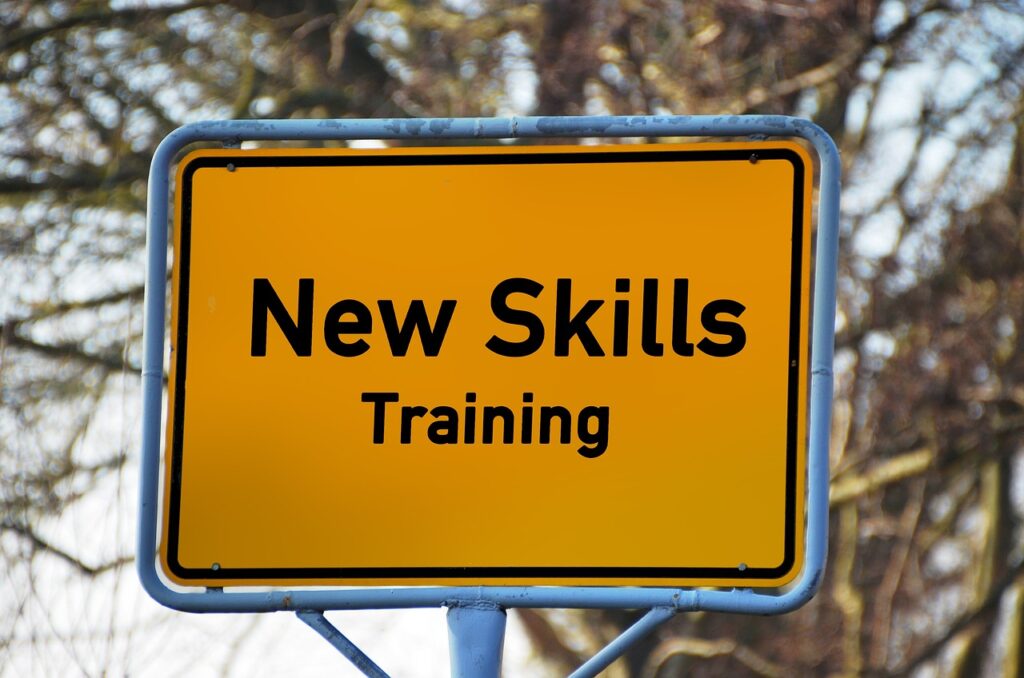Skill-based learning focuses on acquiring practical abilities and knowledge essential for success in the modern job market. As industries evolve, skill-based learning becomes increasingly vital for both personal and professional growth. We’ll explore the benefits, implementation, and challenges of skill-based learning and how it compares to traditional learning methods. Read on to discover how embracing skill-based learning can boost your career and employability.
The Benefits of Skill-Based Learning
Embracing skill-based learning offers a myriad of advantages that contribute to personal and professional growth. By focusing on practical abilities, learners can improve their employability and job readiness. Skill-based learning fosters adaptability and resilience, making it easier to navigate new challenges and seize opportunities.
Furthermore, skill-based learning promotes lifelong learning, encouraging individuals to continually update their knowledge and abilities. This approach not only enhances personal development but also empowers learners to tackle complex problems with creative solutions and critical thinking. By adopting skill-based learning, individuals can unlock their full potential and thrive in their chosen career paths.
Skill-Based Learning vs. Traditional Learning
Understanding the differences between skill-based and traditional learning approaches is crucial for making informed decisions about your education and career. skill-based learning emphasizes the acquisition of practical abilities and knowledge tailored to specific job requirements. In contrast, traditional learning focuses on broader subjects and theoretical knowledge, often following a predetermined curriculum.
Each approach has its pros and cons. Skill-based learning offers improved employability, adaptability, and personal growth, while traditional learning provides a well-rounded education and a solid foundation for further studies. The choice between these learning methods depends on individual goals and preferences. To determine the best approach for you, consider your desired career path, the skills required for success in that field, and the type of learning experience that suits your needs and interests.

Skill-Based Learning Examples in Various Industries
Across numerous sectors, skill-based learning offers a diverse range of opportunities to develop the abilities necessary for career advancement. In the information technology field, individuals can learn coding and programming languages to create and maintain software applications. Cybersecurity training equips learners with the tools to protect sensitive data and systems from unauthorized access. Data analysis skills enable professionals to interpret and draw insights from complex information sets, driving informed decision-making processes.
Healthcare is another industry in which skill-based learning plays a crucial role. Patient care technician training, medical billing and coding programs, and home health aide courses are just a few examples of specialized education options that can lead to rewarding careers. These skills are essential for providing quality care and ensuring the efficient operation of medical facilities.
In the manufacturing and trades sector, practical skill development is vital for success. Welding, CNC machining, and plumbing and electrician training programs are designed to teach the hands-on abilities required for these high-demand jobs. By mastering these skills, individuals can secure stable employment and contribute to the growth of their industries.
Lastly, business and management professionals can benefit from skill-based learning in areas such as project management, sales and marketing, and human resources. These competencies are transferable across various sectors, empowering individuals to excel in their chosen careers and adapt to evolving market needs.
Implementing Skill-Based Learning in Your Career Path
To successfully integrate skill-based learning into your career journey, start by assessing your current skills and identifying any gaps. This self-evaluation can guide you in creating a personalized learning plan that aligns with your goals and interests.
Take advantage of the myriad of online resources and platforms available for skill development, such as MOOCs, webinars, and industry-specific courses. Networking and seeking mentorship opportunities can also provide valuable insights and guidance on honing your skills.
Finally, keep track of your progress and showcase your achievements through professional portfolios and certifications. By actively implementing skill-based learning in your career path, you can unlock new opportunities and reach your full potential.
Learning Formats
There are several formats available for skill-based learning, catering to different learning preferences and schedules. Online courses provide a convenient option for those who prefer self-paced learning or have limited time for in-person classes. The advantages of online skill-based learning include flexibility, accessibility, and the ability to review materials as needed. Reputable platforms such as Coursera, Udemy, and LinkedIn Learning offer a wide range of courses tailored to specific skill development needs.
For those who learn best through hands-on experiences, in-person workshops, and training programs can be a valuable option. Benefits of this format include direct interaction with instructors, real-world application of skills, and networking opportunities. Local community colleges, vocational schools, and professional associations often host in-person skill-based learning opportunities, providing resources for learners to enhance their abilities.
Apprenticeships and internships offer another avenue for building skills through on-the-job training. These programs provide practical experience, mentoring, and the opportunity to learn from industry professionals. To find and secure apprenticeships or internships, individuals can connect with local organizations, job centers, and online resources, or reach out to potential employers directly. By participating in these programs, learners can gain valuable skills that can be immediately applied to their careers.

Skill-Based Learning in Formal Education
As the demand for skilled workers grows, skill-based learning is becoming increasingly relevant in K-12 and higher education. Competency-based education, which focuses on the mastery of specific skills rather than time spent in the classroom, plays a crucial role in skill development. This approach allows students to progress at their own pace and ensures they are well-prepared for their future careers.
Integrating skill-based learning into traditional education settings can help bridge the gap between academic knowledge and practical abilities. Schools and universities are now offering more project-based and experiential learning opportunities to promote skill development. The future of education is likely to see an even greater emphasis on skill-based learning as educators and policymakers recognize its importance in preparing students for success in the workforce.
Evaluating Skill-Based Learning Programs
When selecting a skill-based learning program, it is crucial to consider several factors to ensure the best possible outcome. First, look for accreditation and industry recognition, which demonstrates that the program meets established standards and is respected by employers. This helps to ensure that the skills acquired will be valued in the job market.
Additionally, examine the curriculum and learning outcomes to determine whether they align with your career goals and skill development needs. A well-designed program should provide comprehensive instruction in the targeted skills and offer opportunities for practical application.
Cost is another important consideration, as well as the availability of financial aid options. Many skill-based learning programs offer scholarships, payment plans, or employer-sponsored tuition reimbursement to help offset expenses. It is important to explore these opportunities in order to make an informed decision about your investment in education.
Finally, consider the flexibility and accessibility of the program, particularly for adult learners who may be balancing work, family, and other responsibilities. Programs that offer online or part-time options, as well as those with multiple start dates, can better accommodate the needs of busy individuals. By carefully evaluating these factors, you can choose the skill-based learning program that best suits your needs and aspirations.
Employers’ Perspective on Skill-Based Learning
From an employer’s perspective, skills play a vital role in the hiring process. Companies are increasingly seeking candidates with a strong skill set that aligns with their specific needs. To meet this demand, many organizations are incorporating skill-based learning into their training and development programs, ensuring their workforce remains competitive and adaptable.
Success stories of companies that have embraced skill-based learning highlight the benefits of this approach in terms of increased productivity, innovation, and employee satisfaction. For job seekers, showcasing relevant skills during interviews and on resumes is essential to stand out in a competitive job market. By highlighting practical abilities and emphasizing continuous learning, candidates can demonstrate their value to potential employers and enhance their career prospects.

Challenges and Barriers to Skill-Based Learning
Despite its advantages, skill-based learning faces several challenges and barriers. Overcoming the mindset of traditional learning is crucial to fully embrace the benefits of acquiring practical skills. Additionally, addressing the digital divide and ensuring equitable access to resources is essential for promoting skill development across various demographics.
Navigating the vast array of available learning options can be overwhelming, making it essential to identify and prioritize the most relevant opportunities. Moreover, balancing skill development with other responsibilities, such as work and family, requires effective time management and commitment to lifelong learning. By acknowledging and addressing these challenges, individuals can successfully integrate skill-based learning into their education and career paths.
Success Stories: Real-Life Examples of Skill-Based Learning
Countless individuals have experienced the transformative power of skill-based learning in their professional and personal lives. Through these programs, they have acquired valuable competencies, leading to career advancement, increased job satisfaction, and personal growth. By sharing their stories, we can gain insights into the diverse ways skill-based learning can benefit both employees and employers.
Employers also recognize the value of skill-based learning in the workplace, as it contributes to a more competent and adaptable workforce. Testimonials from companies highlight the positive impact of these programs on employee performance, problem-solving abilities, and overall productivity. This feedback underscores the importance of investing in skill development for the betterment of both individuals and organizations.
Ultimately, the impact of skill-based learning extends far beyond the acquisition of specific abilities. By embracing this approach to education, individuals can foster a mindset of continuous growth and adaptation, allowing them to thrive in an ever-changing job market and achieve their full potential.
Schools and Platforms Offering Skills-Based Learning Options
There are numerous colleges and online learning platforms that offer skills-based learning and skill development programs. Here are some well-known options:
Online Learning Platforms
Coursera: Coursera offers a wide range of courses and Specializations in collaboration with universities and organizations. Many of these courses focus on developing practical skills in fields like technology, business, and data science.
edX: Founded by Harvard and MIT, edX provides access to high-quality courses from top universities and institutions. They offer MicroMasters programs and Professional Certificate programs designed to help learners acquire specific skills.
Udacity: Udacity specializes in tech-related courses and nanodegree programs. They have partnerships with leading tech companies to offer project-based learning experiences that focus on job-ready skills.
LinkedIn Learning: LinkedIn Learning offers a vast library of video courses covering a wide range of skills, including software development, design, business, and more. It integrates with LinkedIn profiles for professional networking.
Skillshare: Skillshare focuses on creative skills such as graphic design, photography, and video editing. It’s a platform for both learners and instructors to share their expertise.
Pluralsight: Pluralsight provides technology-focused courses and assessments to help individuals build technical skills in areas like software development, IT, and cybersecurity.
Khan Academy: Khan Academy offers free educational content in subjects like mathematics, science, and computer programming, making it a valuable resource for skill development.

Colleges and Universities
Harvard University Extension School: Harvard Extension School offers online courses and certificate programs in various subjects, allowing students to gain skills from one of the world’s most prestigious universities.
Stanford Online: Stanford University offers online courses and certificates in fields such as computer science, entrepreneurship, and engineering.
MIT OpenCourseWare: The Massachusetts Institute of Technology provides free access to course materials and lecture videos for a wide range of subjects, including technical skills.
University of California, Berkeley Online: UC Berkeley offers online courses and programs in areas like data science, cybersecurity, and project management.
Columbia University Online: Columbia University offers online certificates and courses in business, leadership, and technology.
Georgia Institute of Technology Online: Georgia Tech offers online master’s degree programs in subjects like computer science and analytics, which focus on practical skills.
University of Washington Continuum College: UW Continuum College provides online certificates and courses in areas like data analysis, digital marketing, and web development.
Remember that the availability of specific courses and programs may change over time, so it’s essential to check the respective websites for the most up-to-date information and course offerings. Additionally, consider your career goals and choose programs that align with your skill development needs.
Conclusion
Skill-based learning is essential for success in today’s rapidly evolving job market. Embracing this approach as a lifelong pursuit can lead to improved employability, personal growth, and adaptability. We encourage you to explore further resources and support from Pathways2Advancement to help you navigate your education and career journey, enabling you to make informed decisions and achieve your goals. Together, we can empower you to unlock your full potential and thrive in your chosen career path.



